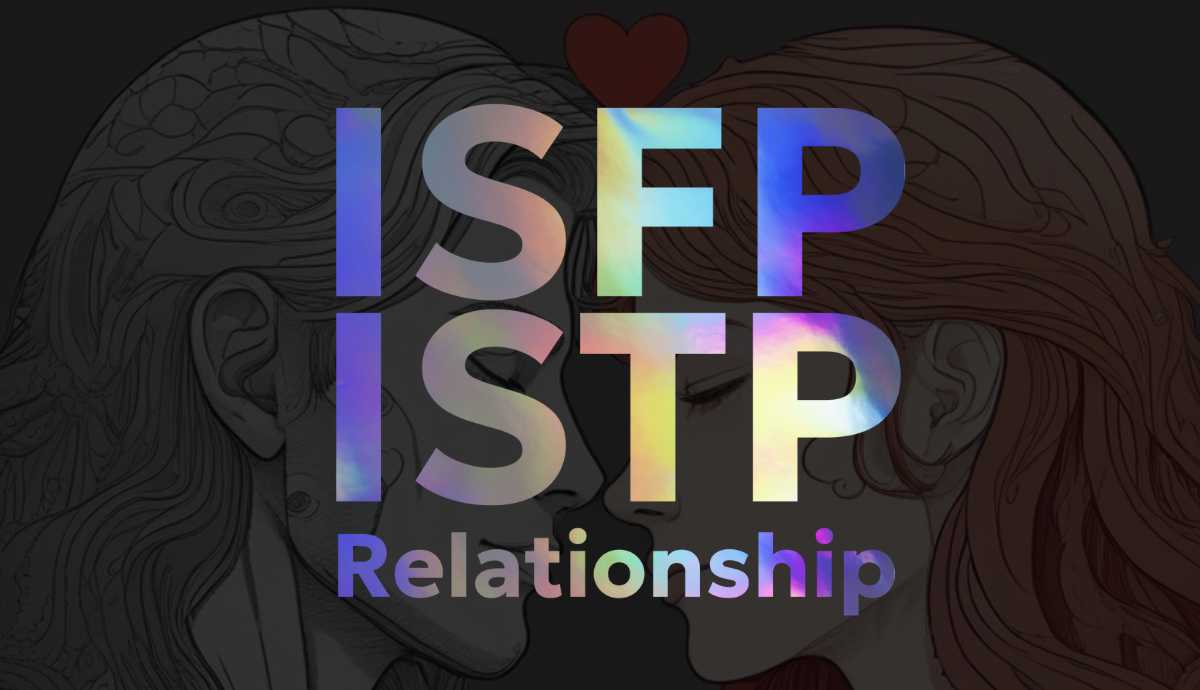INTP
Being thought of as boring or unintelligent.
INTPs derive most pleasure from solitary activities such as research and acts of creativity. Their minds are always bubbling with ideas and random sometimes hilarious cogitations. INTPs know that if someone were to glimpse the amusing contents of their thoughts it would be clear why they are so absorbed with their inner world.
They do not particularly concern themselves with what people think of them but on some level they do realize that their penchant for being reserved and detached can lead other more extroverted types to assume they are boring, dumb, or arrogant. INTPs are sometimes torn between doubling down on their defiance of social paradigms or coming out of their shell to impress everyone with how witty and funny they can be. INTPs generally don’t feel the need to prove how interesting they are to anyone; it is enough that they know it. But when they sense they are being underestimated or labelled as dull, they may be compelled to unveil some of the brilliance they keep to themselves.
INTJ
Showing emotional weakness and vulnerability.
INTJs are not known for being soft emotional sponges nor would they want to be. Part of this is due to their disapproval of maudlin displays of sentimentality viewing it as a sign of weakness.
Having a bleeding heart does not jibe with the INTJ’s self-image, which in their mind would resemble a pillar of stoic strength built with the blocks of empirical truth. INTJs prize their independence and their sense of agency and self-sufficiency. Despite their phlegmatic demeanor, INTJs do experience a flux of emotions that threaten to destabilize their temperament, potentially sending them into fits of rage or into the pits of depression. They actively suppress the expression of these feelings choosing instead to examine their meaning intellectually. The realm of emotions is to them a messy and troublesome affair and INTJs fear baring too much of their soul at the altar of public scrutiny.
ENTP
Being liked by others.
ENTPs thrive on engaging in animated debates where they can flex their litigious wit. In the process, they can cultivate the reputation of a quarrelsome troll who will indulge in frivolous arguments just for the helluvit.
Others may quickly learn to avoid messing with ENTPs because of their skill with mordant retorts. ENTPs may sometimes be concerned if those even in their inner circle truly value their friendship. They want to be entertaining and amusing to others and they spend a lot of time trying to be charming and clever conversationalists. They can seem very airy and impersonal but they still desire deep and meaningful connections with people.
ENTJ
Their ability to seize opportunities in the moment.
ENTJs are statistically the highest earning of all the personality types; a figure they would undoubtedly take pride in. They are enterprising and always casting their radar out into the ethosphere scanning for new horizons to explore. They are naturally competitive and know that there are always competitors who threaten to snap up an idea or opening before they can.
This is a source of stress for them and something they endeavor to mitigate by optimizing and refining their senses and ability to capitalize on good bets before others can. They can be so busy thinking ahead of the curve, that they overlook unexpected windows of opportunity that suddenly appear in the here-and-now. Being the ambitious high achievers they are, they would not want to miss out on valuable options just because they were too singularly focused on their predefined plans.
INFP
Their ability to trust and fully open themselves to others.
INFPs don’t like getting burned but at some point in their lives, it’s bound to happen. When it does, the lesson can have lasting impact on future relationships making them more guarded and harder to get to know well. They can become very suspicious and distrustful of other’s motives for fear of being taken advantage of or betrayed again.
Luckier INFPs may never experience the need to develop an emotional coat of armor but for many, it is essential for protecting their psychological balance. People who want to get past an INFP’s emotional barriers will likely first have to pass the battery of ‘character’ tests which the INFP administers through furtive observation of their subject over time.
INFJ
Being treated unfairly.
For all their noble qualities, INFJs are apt to develop a persecution complex in response to criticism leveled against them. Their sensitivity to criticism and conflict can easily render them feeling victimized and beleaguered by others who disagree with their ideas or beliefs.
In asserting their ideas they sometimes feel their back is against the wall as they contend with what they view as unfair treatment or willful misconstructions of their arguments by opponents. By their estimate, most of the problems INFJs face stem from a failure by others to properly understand them or simply a depravity of good ethical principles on their part. INFJs are inclined to cry foul when they sense the playing field is not level and often, the causes they take up are centered around equalizing it.
ENFP
Being viewed as aimless and unmotivated.
Though often very talented, ENFPs at their heart may harbor some insecurities that they attempt to alleviate through achievement. Earning status, fame and recognition in the world may serve as tokens of validation for them and they pursue this end with charismatic chutzpah.
They accentuate their quirkiness and creativity like a peacock displaying it’s plumage. They contribute to the world through their unusual yet valuable and often spiritual insight. It would put a damper on their self esteem if they were viewed as typical or commonplace. They would like to fancy themselves as more than just another crab in the barrel but at the same time desire to uplift and inspire others.
ENFJ
Being alone or ostracized socially.
ENFJs may have the noblest of intentions but their lofty ideals can sometimes set them up for failure. Their desire to be everything to everyone leads them to become charismatic and popular moral leaders but sometimes come across as glib and disingenuous as well.
The effort to maintain the pristine saintly image they have built up can force them to conceal or deny the human flaws they share along with the rest of us. They fear disappointing other’s expectations of them or their idea of what others should expect of them. They want to be a belweather and shining example of decency and likability. ENFJs fear becoming a pariah and being cutoff from the social main and they can be quite officious in their effort to gin up their popularity and esteem within their community.
ISFJ
Being valued and needed by others.
ISFJs want to help others and derive much of their self-worth from how vital a role they can serve in this regard. They feel most secure when they are dutifully fulfilling a support function upon which others depend.
But like a crack dealer, they may go so far as to stimulate this dependence in others by monopolizing their role such that no else may be allowed to conduct it for themselves. In order to satisfy their own need to feel needed they may attempt to make themselves indispensable by performing tasks to such a high degree and standard that others would feel loathe or unwilling to match it. It would be heart-breaking for them to feel that no one truly appreciated or needed them for anything.
ISTJ
Being respected and seen as trustworthy.
ISTJs are tradition-minded empiricists who look to be a firm and responsible figure in both their personal and professional circles. They seek to position themselves in a place of authority where they can make decisions and assert control.
In order to justify this, they make an effort to maintain an image of high standards, and ethic. They want to be seen as diligent and dutiful and will cultivate this image even to the point of appearing self-righteous and sanctimonious. They will seek respect from their subordinates even if they have to demand it sometimes resorting to dictatorial means. ISTJs may be very fair but strict and disciplined. They view their conservative temperament as essential to being taken seriously as an object of authority and repute.
ESFJ
Being appreciated and love-worthy.
ESFJs will go to great lengths to please those around them, sometimes doing too much and annoying others in the process. This is because they want to be appreciated and valued by others and will make gestures to engender gratitude from them.
They may occasionally feel their place in the hearts of others unjustly threatened by someone or something and they may engage in not-so-subtle attempts at winning favor with them. They may particularly engage in shameless self promotion making exaggerated claims about their abilities and qualities. Within a group, they may become stressed out as they are pulled in a million different directions, attempting to please everyone while also becoming extremely sensitive to others’ opinions of them. They are extremely concerned with being accepted and feeling liked.
ESTJ
Implementing their own ideas.
ESTJs usually look to their experience and history to guide them in their decisions and methods. They focus on facts and data and value tradition and customs but they also have ideas of their own although they may not always be confident enough to rely on them.
ESTJs do not like being seen as unoriginal and unimaginative and will at times try to convey an openness to new ideas and possibilities whether put forward by themselves or others. Of course, it would be ideal if they could take as much credit as possible for the ideas that really work. Their sense of pride and self empowerment compels them to occasionally venture outside of their comfort zone when necessary and be more inventive.
ISFP
Being under other’s control.
ISFPs have no desire to control other people and simply want to be free to be who they are. They want to express themselves and their unique creativity authentically and unadulterated by arbitrary social constrictions.
A rigid, stifling environment is terrifying to this type. They are insecure about feeling imposed upon or beholden to others particularly within a power structure or hierarchy. They fancy themselves as free spirits owned by no one. They do not like feeling common and lowly and crave the freedom to express themselves like the rest of us crave water and air. This type needs to go out into the world and explore, discover and create without limitations, in order to feel like themselves. They fear having their self-expression limited in any way.
ISTP
Hands-off Learning
ISTPs are stupid by no means, but their cognitive style lends itself to a more tactile approach to education.
They are statistically one of the least academically inclined personality types because classroom settings and literature-based curriculum don’t stimulate or cater to their way of learning. The ISTP lives to understand the world in a direct, concrete fashion. They learn by tinkering, testing, experimenting and meddling. A world in which they are expected to blindly accept how things work is a world that they don’t want to live in. The ISTP needs to get their hands dirty in life – and being held back from doing so is a truly terrifying thought.
ESFP
Their attractiveness and sense of self worth.
ESFPs live to perform, entertain and excite those around them. The spotlight is where they thrive and their idea of horror is a world in which nobody finds them interesting or entertaining. They live to explore people possibilities and the idea of those possibilities disappearing truly scares them. They want to be popular and well-liked and will often blend in to their environment to do so. ESFPs take special interest in their appearance and social image and are very aware of how they are perceived by others. They enjoy being the epicenter of attention and try to gin up excitement when they come around. They also dislike being seen as unintelligent and will take that very offensively. Just because the ESFP enjoys having fun, does not mean they are not intelligent.
ESTP
Their public image and being admired by others.
ESTPs are often attention seekers who would be malcontent in a modest life of obscurity. They want to be somebody and can be very ego-centric and arrogant in their pursuit of prestige, adulation and acclaim.
Their actions are often calibrated to achieve this end and their means may range from low brow prat-falls and slap stick-humor to prodigious accomplishments in the realm of academics and business. They fear the prospect of failure and being a disappointment in the eyes of others perhaps especially those of a parental figure. At the same time, it may be that they predicate their personal value on material expressions of value such as expensive property, accolades and titles of rank.
related posts:
- How Imaginative You Are Based on MBTI Type
- The 10 Commandments of the MBTI Types
- Here is the Story Arc for Each MBTI Type
- The Critical Parent Role of Each Myers Briggs Type
- What Each MBTI Type Will Do When The Robots Takeover
Want to know your astrology placements? You can generate your astrology chart here with our free birth chart generator tool.
- The 8 Cognitive Functions Explained - May 17, 2025
- American Presidents Ranked By Zodiac Sign - January 20, 2025
- ESTP and ESFP in love: 6 Dynamics of Their Relationship - September 4, 2024







